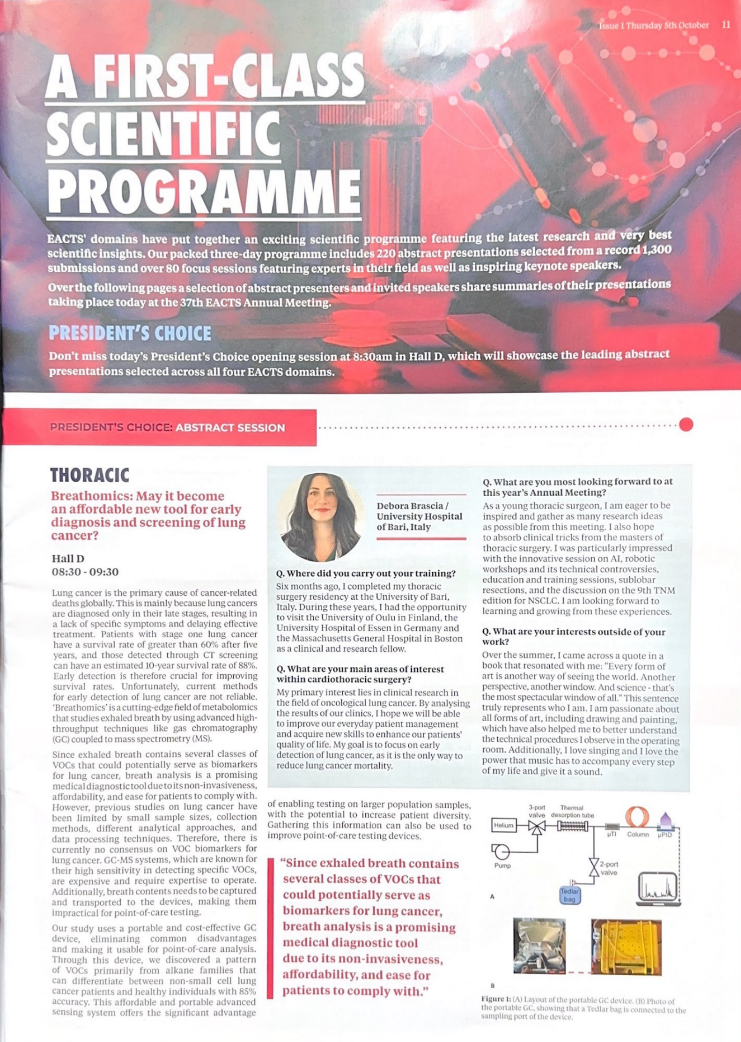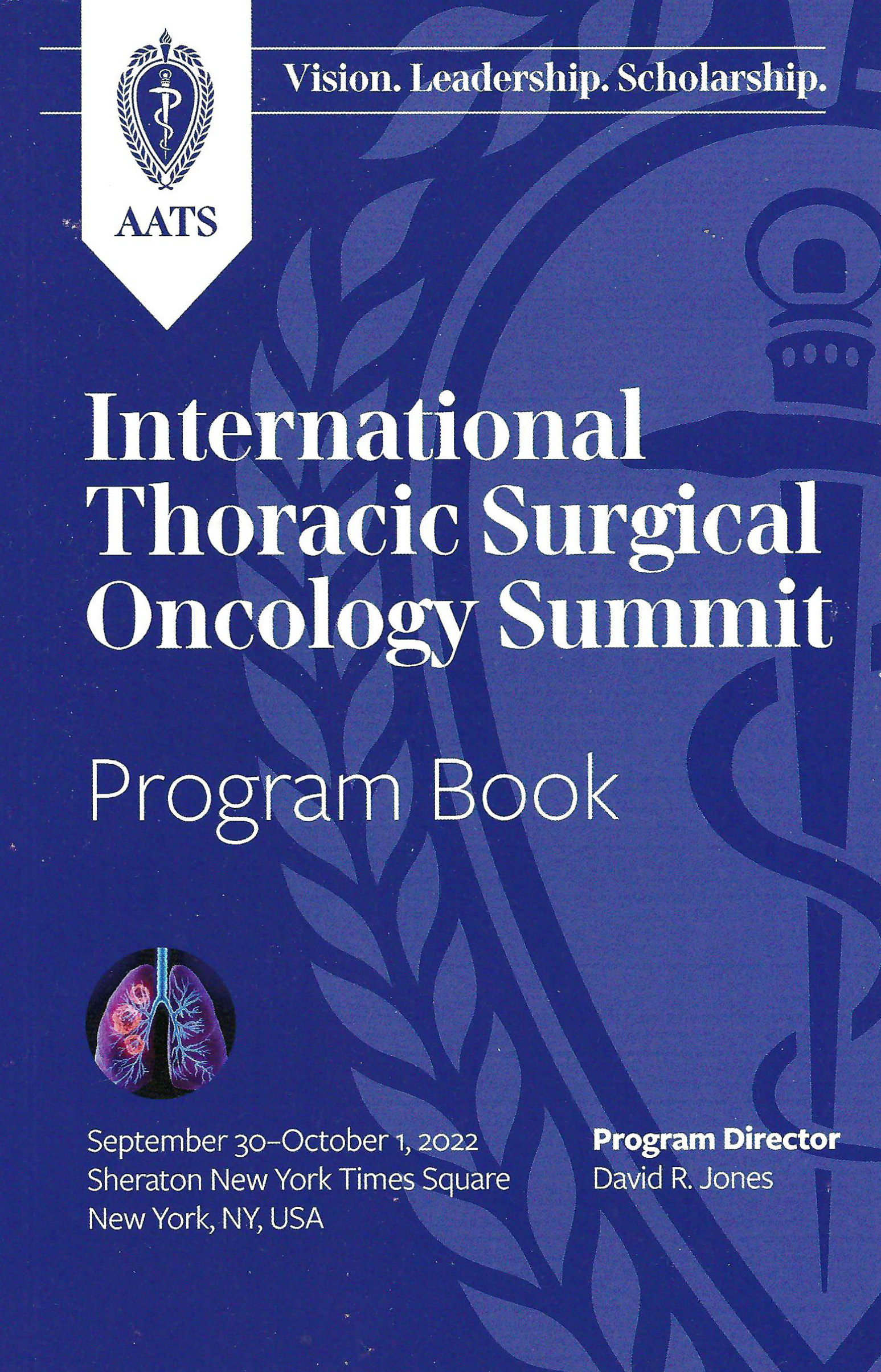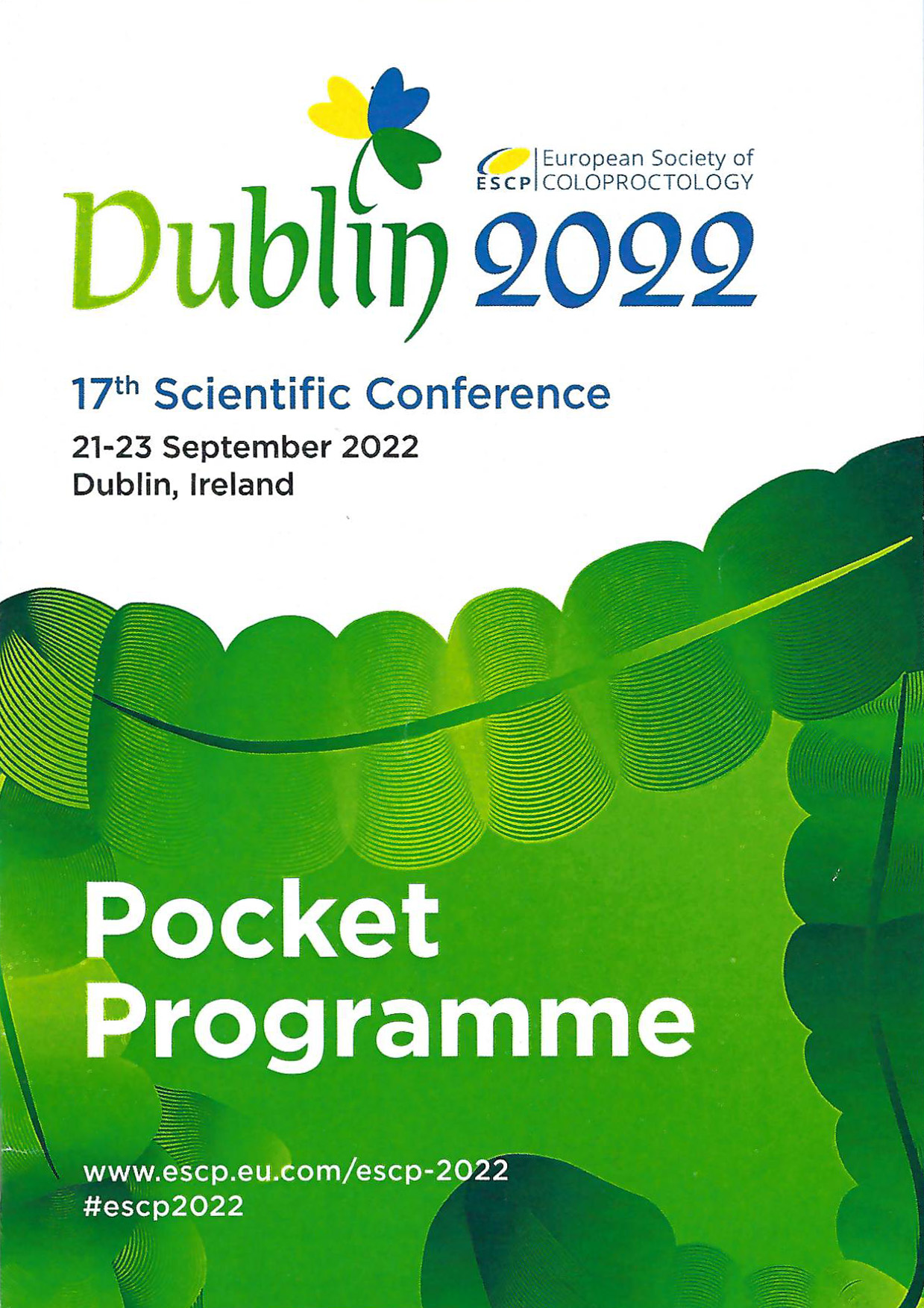Clinical Results


European Association For Cardio-Thoracic Surgery
The European Association for Cardio-Thoracic Surgery was founded in 1986 as a European organisation devoted to the practice of cardio-thoracic surgery. Membership has now spread all over the world with 4000 active members including surgeons, perfusionists and allied health professionals.
EACTS Annual Meeting
October 5-7, 2023
Vienna Austria

International Thoracic Surgical Oncology Summit
The American Association for Thoracic Surgery is an international association of cardiothoracic surgeons. It was founded in 1917 by the earliest pioneers in the field of thoracic surgery. Headquartered in Beverly, Massachusetts, it has over 1,200 members from 35 countries.
International Thoracic Surgical Oncology Summit
September 30 – October 1, 2022
Sheraton New York Times Square
New York, NY USA

ESCP (European Society of Coloproctology)
17th Scientific Conference
ESCP aims to be the professional organization in Europe for the prevention and treatment of colorectal disease through education, training, and research. We are a not-for-profit membership organization, with an elected Council and Board of Trustees.
September 21 – 23, 2022
The Convention Centre Dublin
Dublin, Ireland
VP21 RAPID BREATH ANALYSIS FOR COLORECTAL CANCER DETECTION USING AN AUTOMATED PORTABLE GAS CHROMATOGRAPHY DEVICE
Clinical Sites
Research Partners

University of Michigan
The University of Michigan is a public research university in Ann Arbor, Michigan founded in 1817. According to the National Science Foundation, University of Michigan is ranked 2nd for R&D expenditures in the United States spending $1.6 billion annually. Their research infrastructure includes 2.8 million square feet of lab space and resulted in 502 new inventions in 2019.

The University of New Mexico
The University of New Mexico is a public research university in Albuquerque, New Mexico founded in 1889. The University of New Mexico Health Sciences office of research is the only academic medical center in New Mexico. At any given time, they manage over 300 clinical trials and 900 major research projects.

Universita Degli Studi Di Bari
The University of Bari Aldo Moro was founded in 1925 in Southern Italy. It is a state supported university divided into 12 faculties. The University is one of the 48 Italian higher education institutions in the CWUR list of the top 1000 universities in the world for 2016. Moreover, it has been ranked between 151st and 200th in the world for Physics by Academic Ranking of World Universities (ARWU)


